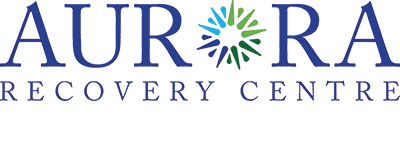Programs
At Aurora Recovery Centre we can help you grow in an ecosystem of understanding.
Alcohol Addiction Treatment

When drinking alcohol becomes a problem.
Alcohol is considered a social norm and for the vast majority of people, it is socially acceptable. We use it to celebrate, relax, cope, socialize, bond, and gather. It is sensible to conclude that increased exposure and access to alcohol are linked to increased drinking. But when is too much, too much?
Not everyone who drinks alcohol has a problem with alcohol, but when they no longer have control over their drinking, they have what is known as alcohol use disorder (AUD).
What is alcohol use disorder?
AUD is characterized by someone who develops a pattern of alcohol use that becomes detrimental and uncontrollable. If you put your health or safety at risk, or the health and safety of others, or if you struggle to function in your daily life, you likely have AUD. This disorder can range from mild and moderate to severe, depending on the number of symptoms that someone experiences.
Signs and symptoms of AUD:
- Difficulty limiting the amount of alcohol you drink
- Wanting to cut down on how much you drink or making unsuccessful attempts to do so
- Spending a lot of time drinking, getting alcohol, or recovering from alcohol use
- Having strong cravings or urges to drink alcohol
- Failing to fulfill major obligations at work, school, or home due to repeated alcohol use
- Continuing to drink alcohol even though you know it’s causing physical, social, work, or relationship problems
- Giving up or reducing social and work activities, as well as hobbies to use alcohol
- Using alcohol in situations where it’s not safe, such as when driving or swimming
- Developing a tolerance to alcohol so you need more to feel its effect or you have a reduced effect from the same amount
- Experiencing withdrawal symptoms such as nausea, sweating, and shaking when you don’t drink, or drinking to avoid these symptoms
Any of these symptoms may be cause for concern. The more symptoms, the more urgent the need for change.
- Mild – Presence of 2 to 3 symptoms
- Moderate – Presence of 4 to 5 symptoms
- Severe – Presence of 6 or more symptoms
AUD can include periods of being drunk (alcohol intoxication) and symptoms of withdrawal. It’s a dangerous cycle that can be very hard to break.
What is alcohol intoxication?
Alcohol intoxication occurs as the amount of alcohol in your bloodstream increases. Alcohol intoxication causes behaviour problems and mental changes because it affects your central nervous system.
Signs and symptoms of alcohol intoxication:
- Inappropriate behaviour
- Unstable moods
- Poor judgment
- Slurred speech
- Problems with attention or memory
- Poor coordination
- Blackouts
- Coma
- Permanent brain damage
- Death
What is alcohol withdrawal?
Alcohol withdrawal can occur when alcohol use has been heavy and prolonged, and is then stopped or greatly reduced. It can occur within hours to several days later.
Signs and symptoms of alcohol withdrawal:
- Sweating
- Rapid heartbeat
- Hand tremors
- Problems sleeping
- Nausea and vomiting
- Hallucinations
- Restlessness and agitation
- Anxiety
- Seizures
- Death
The health risks of excessive alcohol use
Organ damage and cancer risk – Excessive alcohol use affects most of the body’s organs, including stomach, liver, and heart. Heavy drinkers are at increased risk for many types of cancers, including throat, breast, and stomach.
Damage to brain function and mental health – Drinking alcohol can harm your brain, lowering memory and cognitive ability. It can also cause or deepen depression and lead to dementia.
Disruption of sleep patterns – Alcohol also interferes with sleep function, which can worsen many mental health disorders and has significant negative overall impacts on health.
When to seek help

Many people with AUD hesitate to get treatment because they don’t recognize they have a problem. An intervention from loved ones can help some recognize and accept that they need professional help. Trying to detox on one’s own without medically assisted help is not advised as withdrawal can progress to violent seizures, delirium tremens (DTs), and death.
Several evidence-based treatment approaches are available for AUD. One size does not fit all and a treatment approach that may work for one person may not work for another. At Aurora, we assess your treatment options and tailor a program specifically for you.
Most people abuse alcohol because they are using the depressant effect of alcohol in attempts to deal with other issues.
These issues may stem from stress, depression, post-traumatic stress disorder (PTSD), trauma, and several other mental health issues. At Aurora, we dig deeper to uncover the underlying causes.
Once medically detoxed and stabilized by our team of doctors, nurses, and nurse practitioners, we then introduce you to your individual counsellor. Your counsellor will work with you to uncover and identify the underlying causes of your AUD, and teach you the tools you will need to effectively maintain your recovery.
If you or someone you love is needing help, please contact us at 1-888-515-STOP (7867).
We offer many treatment plan options from outpatient treatment to residential inpatient treatment plans, ranging from 30-, 45-, 60-, and 90-day programs. In addition, our extended care treatment program allows you to stay on-site at our sober living residences while you transition out of treatment. Here you can still maintain the supports and accountability of the centre while having more freedom to progress onto your next stage of recovery.
GET HELP NOW
"*" indicates required fields
